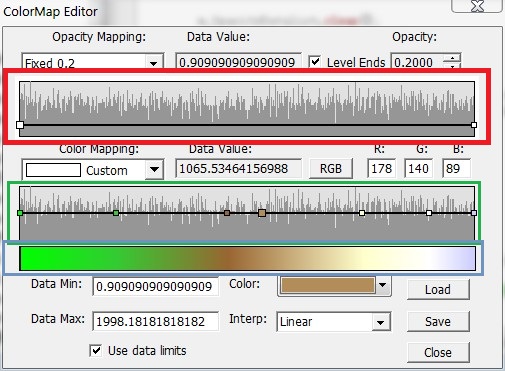基本介紹
函式功能,函式原型,參數,
函式功能
函式原型
HDC CreateCompatibleDC(HDC hdc);
vb定義:
Declare Function CreateCompatibleDC Lib "gdi32" (ByVal hdc As Long) As Long
參數
返回值:如果成功,則返回記憶體設備上下文環境的句柄;如果失敗,則返回值為NULL。
Windows NT:若想獲得更多錯誤信息,請調用GetLastError函式。
注釋:記憶體設備上下文環境是僅在記憶體中存在的設備上下文環境,當記憶體設備上下文環境被創建時,它的顯示界面是標準的一個單色像素寬和一個單色像素高,在一個應用程式可以使用記憶體設備上下文環境進行繪圖操作之前,它必須選擇一個高和寬都正確的點陣圖到設備上下文環境中,這可以通過使用CreateCompatibleBitmap函式指定高、寬和色彩組合以滿足函式調用的需要。
CreateCompatibleDc函式只適用於支持光柵操作的設備,應用程式可以通過調用GetDeviceCaps函式來確定一個設備是否支持這些操作。
當不再需要記憶體設備上下文環境時,可調用DeleteDc函式刪除它。
[From MSDN]
Creates a memory device context that is compatible with the device specified bypDC.
BOOL CreateCompatibleDC(
CDC* pDC
);
CDC* pDC
);
Parameter:
- pDC
- A pointer to a device context. IfpDCisNULL, the function creates a memory device context that is compatible with the system display.
Return Value:
Nonzero if the function is successful; otherwise 0.
Remark:
A memory device context is a block of memory that represents a display surface. It can be used to prepare images in memory before copying them to the actual device surface of the compatible device.
When a memory device context is created, GDI automatically selects a 1-by-1 monochrome stock bitmap for it. GDI output functions can be used with a memory device context only if a bitmap has been created and selected into that context.
This function can only be used to create compatible device contexts for devices that support raster operations. See theCDC::BitBltmember function for information regarding bit-block transfers between device contexts. To determine whether a device context supports raster operations, see theRC_BITBLTraster capability in the member functionCDC::GetDeviceCaps.
Example:
// This handler loads a bitmap from system resources,
// centers it in the view, and uses BitBlt() to paint the bitmap
// bits.
void CDCView::DrawBitmap(CDC* pDC)
{
// load IDB_BITMAP1 from our resources
CBitmap bmp;
if (bmp.LoadBitmap(IDB_BITMAP1))
{
// Get the size of the bitmap
BITMAP bmpInfo;
bmp.GetBitmap(&bmpInfo);
// centers it in the view, and uses BitBlt() to paint the bitmap
// bits.
void CDCView::DrawBitmap(CDC* pDC)
{
// load IDB_BITMAP1 from our resources
CBitmap bmp;
if (bmp.LoadBitmap(IDB_BITMAP1))
{
// Get the size of the bitmap
BITMAP bmpInfo;
bmp.GetBitmap(&bmpInfo);
// Create an in-memory DC compatible with the
// display DC we're using to paint
CDC dcMemory;
dcMemory.CreateCompatibleDC(pDC);
// display DC we're using to paint
CDC dcMemory;
dcMemory.CreateCompatibleDC(pDC);
// Select the bitmap into the in-memory DC
CBitmap* pOldBitmap = dcMemory.SelectObject(&bmp);
CBitmap* pOldBitmap = dcMemory.SelectObject(&bmp);
// Find a centerpoint for the bitmap in the client area
CRect rect;
GetClientRect(&rect);
int nX = rect.left + (rect.Width() - bmpInfo.bmWidth) / 2;
int nY = rect.top + (rect.Height() - bmpInfo.bmHeight) / 2;
CRect rect;
GetClientRect(&rect);
int nX = rect.left + (rect.Width() - bmpInfo.bmWidth) / 2;
int nY = rect.top + (rect.Height() - bmpInfo.bmHeight) / 2;
// Copy the bits from the in-memory DC into the on-
// screen DC to actually do the painting. Use the centerpoint
// we computed for the target offset.
pDC->BitBlt(nX, nY, bmpInfo.bmWidth, bmpInfo.bmHeight, &dcMemory,
0, 0, SRCCOPY);
// screen DC to actually do the painting. Use the centerpoint
// we computed for the target offset.
pDC->BitBlt(nX, nY, bmpInfo.bmWidth, bmpInfo.bmHeight, &dcMemory,
0, 0, SRCCOPY);
dcMemory.SelectObject(pOldBitmap);
}
else
{
TRACE0("ERROR: Where's IDB_BITMAP1?\n");
}
}
}
else
{
TRACE0("ERROR: Where's IDB_BITMAP1?\n");
}
}

